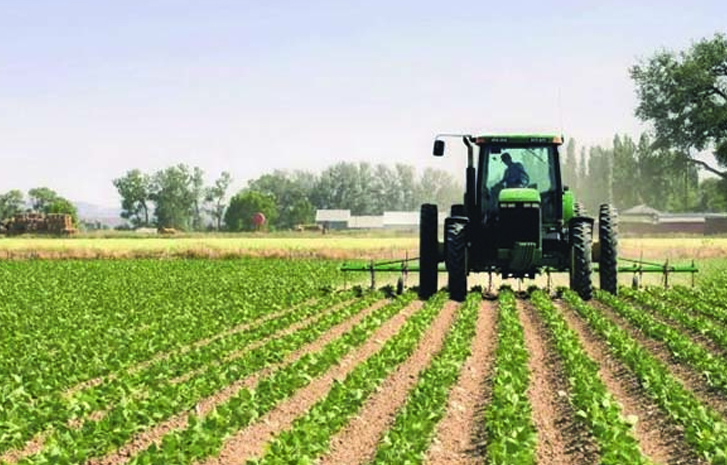Experts from within and outside Nigeria have called for agricultural research into stemming the problem of starvation, increased poverty and other challenges likely to be posed when COVID-19 pandemic ended.
Prof. Job Nmadu, President of Nigerian Association of Agricultural Economists (NAAE), Prof. Adebayo Shittu from the Federal University of Agriculture, Abeokuta, Ogun, and others made this call in a statement on Tuesday in Abuja.
Nmadu said the decisions were reached at an online forum organised by the NAAE in collaboration with Michigan State University.
READ ALSO: Labour leader raises alarm over herdsmen attack in Delta
He said the forum had the theme: “Nigerian Agricultural Policy Research Themes and Focus Post COVID-19.”
The President, NAAE, noted that the place of research in the face of the pandemic could not be overemphasised.
He said the pandemic had added to the plethora of challenges faced in Nigeria, particularly in the agricultural sector and research into the way forward was necessary.
According to him, research is critical to ensuring rising productivity, reduction in income fluctuations and reduction in poverty among other things.
“Suddenly, everything is changing globally. The way we live and work, our social and community relations. The advent of COVID-19 took everybody unawares.
“The numbers are still counting in Nigeria and we do not have any idea how and when all these will end.
“We in the developing world, especially in sub-Sahara Africa, are still grappling with the impacts of climate change, the economic crisis of over a decade ago.
“We are also grappling with unstable political systems, rising
poverty, and unemployment, high levels of food insecurity.
“Now it is COVID-19 with its attendant impacts and a new lexicon and health insecurity,” he said.
According to him, the major task before all is how to ensure that the food systems and supply chains are adequate to feed the rising population, expected to rise from 198,753,871 in 2019
to 255,774,848 in 2030.
The don noted that how to research culture toward policy reforms and interventions would be shaped, post-COVID-19 was paramount.
Another speaker at the forum, Prof. Saweda Liverpool-Tasie, from Michigan State University, called for collaboration among agricultural experts for a lasting solution.
According to Liverpool-Tasie, research is very critical. It should provide clear thinking and direction.
“Unfortunately, many decisions are based on perceptions and feelings rather than facts and it is a big challenge that plagues many countries especially in agriculture.”
On the distribution of palliatives to cushion the effect of the pandemic, Liverpool-Tasie expressed concern over the implementation of different policies, saying, “to what extent does research play a role.
“COVID-19 has given us an opportunity to move from business as usual. It has demonstrated the extent of globalisation and the fact that the global recession is looming,” he said.
Also speaking, Prof. Adebayo Shittu from the Federal University of Agriculture, Abeokuta, Ogun, laid emphasis on collaboration for result-oriented agricultural research.
He said the effect of the pandemic on food security was so huge that more efforts should be geared toward research.
According to him, the pandemic has disrupted supply chains and logistics, and labour flow has also been affected.
Shittu lamented that the pandemic came at a time when Nigerian farmers were expected to be on the farm for pre-planting preparations, affecting the whole planting process.
“Not being able to work within the farming season will affect everything and lead to future supply shortages, hunger, malnutrition and starvation.
“Unfortunately, external trade is affected by the development and trade will remain sluggish for a long time, meaning we have to increase our effort to produce locally,” Shittu was quoted as saying.
The don further said, the development, had now forced Nigerians to go for smaller ration at a more expensive rate.
“Pregnant women and nursing mothers are greatly affected because of lack of proper nutrition for their children to grow optimally.
“There will also need to conduct research on the growth of children born during this pandemic,” he said.
Shittu, however, harped on the need to pay more attention to value addition as well as creative ways to make farming attractive to young Nigerians and those with erroneous perception about farming.
He said investments in food preservation and value addition needed to be taken seriously.
Shittu added that there was need for value addition for tomatoes, vegetables, fish and other perishable food items.
He also stressed the need for every household in urban areas to grow one food item or the other.




 Premier League
Premier League